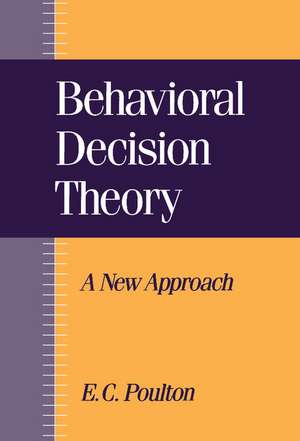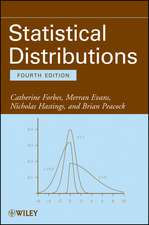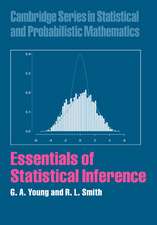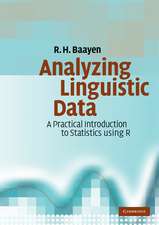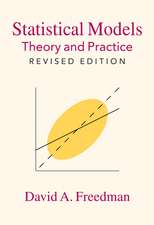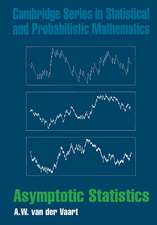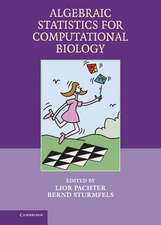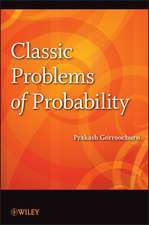Behavioral Decision Theory: A New Approach
Autor E. C. Poultonen Limba Engleză Hardback – 29 sep 1994
Preț: 783.01 lei
Preț vechi: 910.48 lei
-14% Nou
Puncte Express: 1175
Preț estimativ în valută:
149.83€ • 160.22$ • 124.92£
149.83€ • 160.22$ • 124.92£
Carte tipărită la comandă
Livrare economică 18 aprilie-02 mai
Preluare comenzi: 021 569.72.76
Specificații
ISBN-13: 9780521443685
ISBN-10: 0521443687
Pagini: 336
Ilustrații: 36 b/w illus. 46 tables
Dimensiuni: 160 x 237 x 21 mm
Greutate: 0.64 kg
Ediția:New.
Editura: Cambridge University Press
Colecția Cambridge University Press
Locul publicării:New York, United States
ISBN-10: 0521443687
Pagini: 336
Ilustrații: 36 b/w illus. 46 tables
Dimensiuni: 160 x 237 x 21 mm
Greutate: 0.64 kg
Ediția:New.
Editura: Cambridge University Press
Colecția Cambridge University Press
Locul publicării:New York, United States
Cuprins
1. Outline of heuristics and biases; 2. Practical techniques; 3. Apparent overconfidence; 4. Hindsight bias; 5. Small sample fallacy; 6. Conjunction fallacy; 7. Regression fallacy; 8. Base rate fallacy; 9. Availability and simulation fallacies; 10. Anchoring and adjustment bias; 11. Expected utility fallacy; 12. Bias by frames; 13. Simple biases accompanying complex biases; 14. Problem questions; 15. Training; 16. Uncertainties.
Recenzii
"This work represents a major contribution to methodology in the study of human decision making....The book is an outstanding piece of scholarship. It is thorough and authoritative. It provides an original, penetrating, cogently-argued, challenging re-analysis and re-assessment of many of the most infuential studies in the field of human judgement....it throws light on apparent conflicts and paradoxes in the literature and it provides students and researchers with many helpful insights that will enable them to optimise the design of experiments on human judgement....this book looks set to become a standard reference work for students and researchers in the field of human judgement." Raphael Gillett, Applied Cognitive Psychology
"The book is well organized, with separate chapters devoted to each of the major biases....The author has incorporated several reader-friendly devices, such as chapter summaries, as well as sections in all the major chapters on practical examples of the bias described in the chapter and how to avoid it. The helpfulness of these sections varies greatly: Poulton does an excellent job of depicting the dangers that availability can lead to in clinical diagnosis....Poulton emphasises the limitations of behavioral decision research....Because of Poulton's methodological bent, he dissects key experiments- especially Kahneman and Tversky's seminal research-in more detail than do other introductory texts." Applied Cognitive Psychology
"The book is well organized, with separate chapters devoted to each of the major biases....The author has incorporated several reader-friendly devices, such as chapter summaries, as well as sections in all the major chapters on practical examples of the bias described in the chapter and how to avoid it. The helpfulness of these sections varies greatly: Poulton does an excellent job of depicting the dangers that availability can lead to in clinical diagnosis....Poulton emphasises the limitations of behavioral decision research....Because of Poulton's methodological bent, he dissects key experiments- especially Kahneman and Tversky's seminal research-in more detail than do other introductory texts." Applied Cognitive Psychology
Descriere
The book describes the errors that people commonly make in dealing with probabilities.
